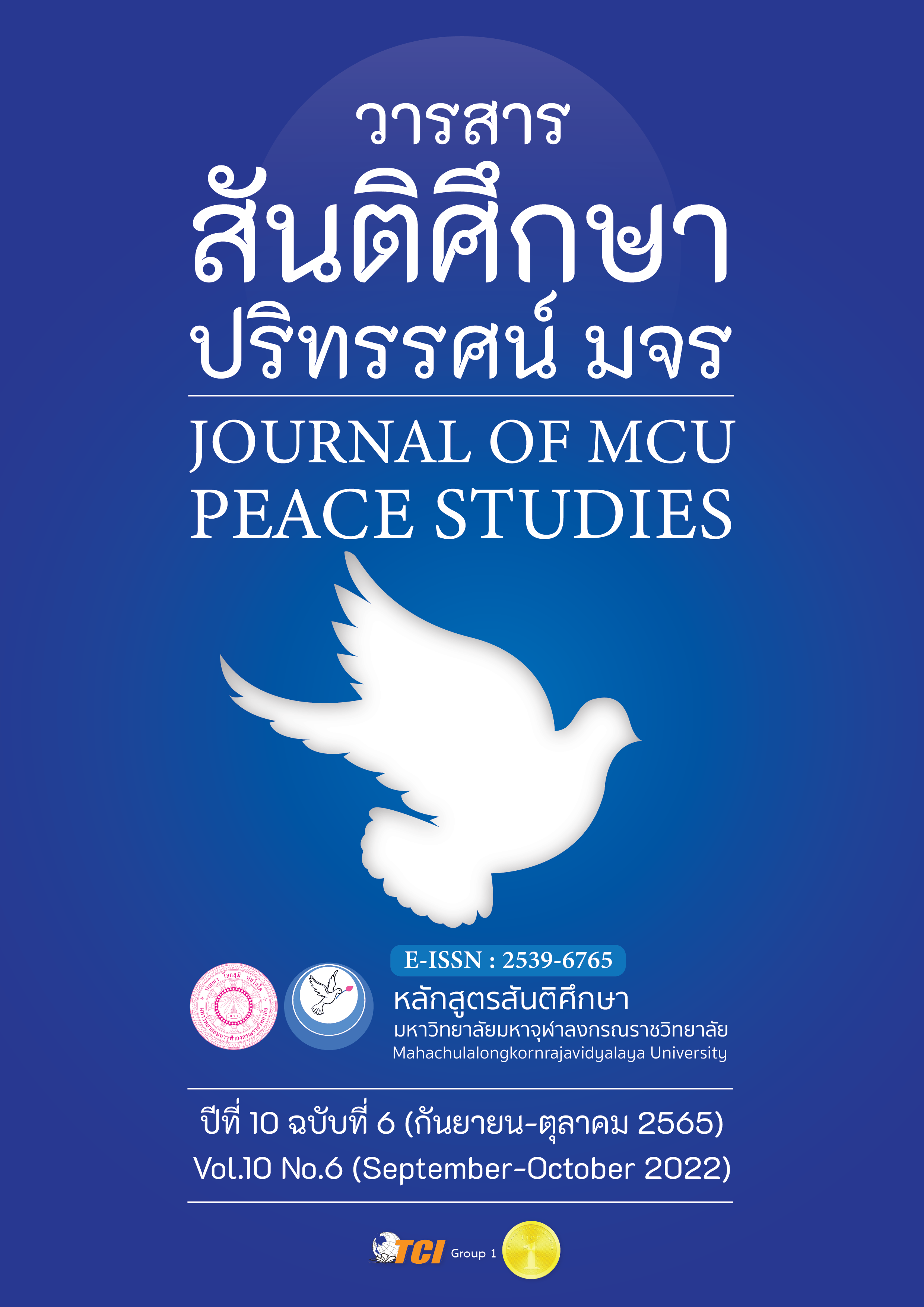การวิเคราะห์องค์ประกอบทักษะการเรียนรู้และนวัตกรรมของนักเรียนประถมศึกษาในโรงเรียนสังกัดสำนักงานคณะกรรมการการศึกษาขั้นพื้นฐาน ในภาคตะวันออกเฉียงเหนือ
Main Article Content
บทคัดย่อ
บทความวิจัยครั้งนี้มีวัตถุประสงค์เพื่อวิเคราะห์องค์ประกอบทักษะการเรียนรู้และนวัตกรรมของนักเรียนประถมศึกษา ในโรงเรียนสังกัดสำนักงานคณะกรรมการการศึกษาขั้นพื้นฐาน ในภาคตะวันออกเฉียงเหนือ ดำเนินการวิจัยโดยการวิเคราะห์เอกสาร การสัมภาษณ์ผู้ทรงคุณวุฒิ และการบรรยายเชิงวิเคราะห์ กลุ่มเป้าหมายในการสัมภาษณ์เป็นผู้ทรงคุณวุฒิ จำนวน 9 คน เครื่องมือที่ใช้ในการเก็บรวบรวมข้อมูลประกอบด้วย แบบวิเคราะห์เอกสาร และแบบบันทึกการสัมภาษณ์ วิเคราะห์ข้อมูลโดยการวิเคราะห์เชิงเนื้อหา
ผลการวิจัยพบว่า ทักษะการเรียนรู้และนวัตกรรมของนักเรียนประถมศึกษา ในโรงเรียนสังกัดสำนักงานคณะกรรมการการศึกษาขั้นพื้นฐาน ในภาคตะวันออกเฉียงเหนือ มี 3 องค์ประกอบหลัก ได้แก่ 1) การคิดสร้างสรรค์และนวัตกรรม มี 3 องค์ประกอบย่อย คือ การคิดอย่างสร้างสรรค์ การทำงานร่วมกับคนอื่นอย่างสร้างสรรค์ และการนำนวัตกรรมไปใช้ 2) การคิดอย่างมีวิจารณญาณและการแก้ปัญหา มี 4 องค์ประกอบย่อย คือ การวิเคราะห์ข้อมูลในการตัดสินใจ การคิดแก้ปัญหา การให้เหตุผลอย่างมีประสิทธิภาพ และการคิดอย่างเป็นระบบ และ 3) การสื่อสารและการร่วมมือ มี 3 องค์ประกอบย่อย คือ การให้ความร่วมมือกับบุคคลอื่น การสื่อสารอย่างมีประสิทธิภาพ และการใช้สื่อเทคโนโลยี
Article Details

อนุญาตภายใต้เงื่อนไข Creative Commons Attribution-NonCommercial-NoDerivatives 4.0 International License.
ทัศนะและความคิดเห็นที่ปรากฏในบทความในวารสาร ถือเป็นความรับผิดชอบของผู้เขียนบทความนั้น และไม่ถือเป็นทัศนะและความรับผิดชอบของกองบรรณาธิการ ยินยอมว่าบทความเป็นลิขสิทธิ์ของวารสาร
เอกสารอ้างอิง
Arreerard, T., & Arreerard, W. (2019). Learning Activities Model for Promotion the Creative Innovation Thinking for the Secondary Students Based on National Education Plan to the Education Management 4.0. Journal of Project in Computer Science and Information Technology, 5(1), 52-64.
Atalay, N. (2019). Slowmation Application in Development of Learning and Innovation Skills of Students in Science Course. International Electronic Journal of Elementary Education, 11(5), 507-518.
Bedir, H. (2019). Developing a Framework for the Integration of 21st Century Learning and Innovation Skills into Pre-Service ELT Teachers’ Practicum. International Online Journal of Education and Teaching (IOJET), 6(4), 828-829.
Boyaci, S. D., & Atalay, N. (2016). A Scale Development for 21st Century Skills of Primary School Students: A Validity and Reliability Study. International Journal of Instruction, 9(1), 134.
Chaingliw, D., & Paiwithayasiritham, Ch. (2018). A Needs Assessment for the Development Learning and Innovation Skill of Bachelor Students in Silpakorn University. Silpakorn Educational Research Journal, 10(1), 215-224.
Chomphuphan, C., Khumkhet, S., & Wilaikeaw, J. (2021). A Development of Collaborative Learning Activities Model Using Social Media to Enhance Creativity and Innovation Skills for Loei Rajabhat University Students. Journal of Rangsit University: Teaching & Learning , 15(1), 85-102.
Ministry of Education (2016). Education Development Plan, Ministry of Education No. 12 (2017-2021). Bangkok: Ministry of Education.
Nachanthong, J. (2017). The Development of Social Active Learning Online Modl to Promote Learning and Innovation Skills for Secondary School Student. (Doctoral Dissertation). Rajabhat Maha Sarakham University. Maha Sarakham.
Onjai-uea, P. (2019). The Promoting Collaborative Learning Skill in the 21st Century Among Undergraduate Students of Kasetsart University. Silpakorn University Journal, 4(39), 97.
Ortega-Dela Cruz, R. (2020). Pedagogical Practice Preferences Among Generational Groups of Learners: Towards Effective Twenty-First Century Higher Education. Journal of University Teaching and Learning Practice, 17(5), 1-19.
Partnership for 21st Century Skills. (2011). 21st Century Skills Map. Washington, DC: Partnership for 21st Century Skills.
Phaiwittayasiritham, C. (2014). A Factor Analysis of Learning and Innovation Skills in the 21st Century Student Teachesr. (Research Report). Bangkak: Faculty of Education Silpakorn University.
Phanid, W. (2012). A Way to Create Learning for Students in the 21st Century. Bangkak: Sod Sri-Saritwong Foundation.
Pichikhom, J. (2016). A Learning and Innovation Skills Developed by the Project-Based Learning. Academic Journal Uttaradit Raiabhat University, 11(1), 1-12.
Praphin, C., Kongmanus, K., Chiranuparp, C., & Kaewurai, W. (2019). The Development of an Instruxtional Model for Computer Subject Based on Project-Based Learning with Social Media to Enhance Information Communication and Tachnology Literacy for Uppe Primary Studentsr. Journal of Education Naresuan University, 21(1), 30-47.
Rahman, M. M. (2019). 21st Century Skill “Problem Solving”: Defining the Concept. Asian Journal of Interdisciplinary Research, 2(1), 71-81.
Saepolkrung, S., & Keeratichamroen, W. (2019). A Study of Learning Achievement on Thai Language and Local Language Unit and Communication and Collaboration of Grade 5 Students Using 5-Steps Learning Management with Mind Mapping. Wiwitwannasan, 3(3), 97-116.
Sankaburanurak, A., & Promsuk, T. (2017). Synectics: A Teaching Model That Promotes Innovation And Creative Thinking Essential Skills In The 21st Century. Veridian E-Journal, Silpakorn University, 10(3), 2555-2566.
Siripatthachai, P. (2013). STEM Education and 21st Century Skills Development. Executive Journal, 33(2), 49-56.
Sokkram, N., & Samanacup, T. (2017). Virtual Smart Classroom to Enhance 21st Century Skills in Learning and Innovation for Higher Education Learners. (Research Report). Bangkak: National Research Council of Thailand (NRCT) and The Thailand Research Fund (TRF).
Tarbutton, T. (2018). Leveraging 21st Century Learning & Technology to Create Caring Diverse Classroom Cultures. Multicultural Education, 25(2), 4-6.
Wilcox, D., Liu, J. C., Thall, J., & Howley, T. (2017). Integration of Teaching Practice for Students’ 21st Century Skills: Faculty Practice and Perception. International Journal of Technology in Teaching & Learning, 13(2), 55-57.


